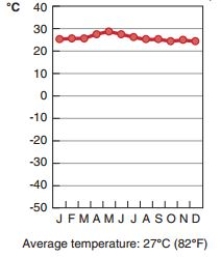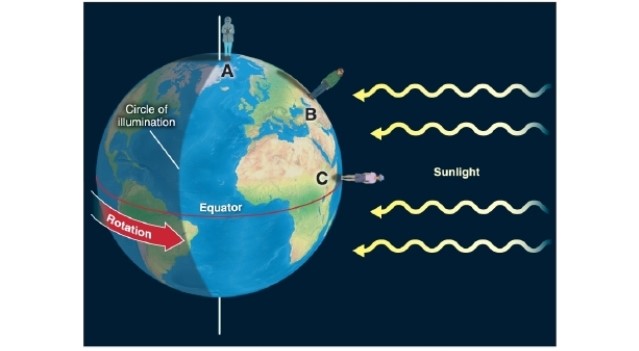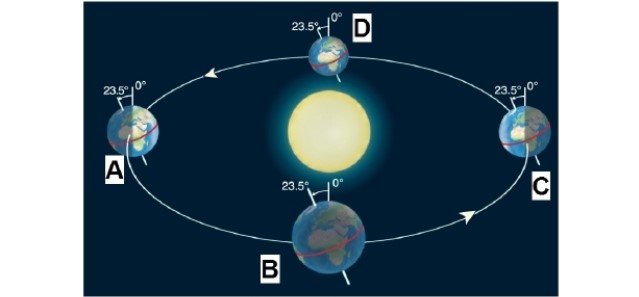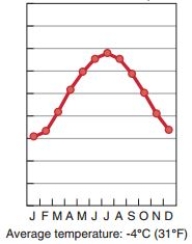Deck 3: Solar Energy and Seasons
Question
Question
Question
Question
Question
Question
Question
Question
Question
Question
Question
Question
Question
Question
Question
Question
Question
Question
Question
Question
Question
Question
Question
Question
Question
Question
Question
Question
Question
Question
Question
Question
Question
Question
Question
Question
Question
Question
Question
Question
Question
Question
Question
Question
Question
Question
Question
Question
Question
Question
Question
Question
Question
Question
Question
Question
Question
Question
Question
Question
Question
Question
Question
Question
Question
Question
Question
Question
Question
Question
Question
Question
Question
Question
Question
Question
Question
Question
Question
Question

Unlock Deck
Sign up to unlock the cards in this deck!
Unlock Deck
Unlock Deck
1/135
Play
Full screen (f)
Deck 3: Solar Energy and Seasons
1
Photovoltaic (PV) panels generate electricity from sunlight.
True
2
Earth's axis is tilted 25 degrees.
False
3
Transmission is the absorption of electromagnetic energy by an object.
False
4
Concentrated solar power (CSP) generates electricity by creating steam from water heated by sunlight.

Unlock Deck
Unlock for access to all 135 flashcards in this deck.
Unlock Deck
k this deck
5
Ultraviolet radiation has shorter wavelengths than visible light.

Unlock Deck
Unlock for access to all 135 flashcards in this deck.
Unlock Deck
k this deck
6
All objects emit electromagnetic radiation.

Unlock Deck
Unlock for access to all 135 flashcards in this deck.
Unlock Deck
k this deck
7
The Gulf Stream current reduces the annual temperature range for northern Europe.

Unlock Deck
Unlock for access to all 135 flashcards in this deck.
Unlock Deck
k this deck
8
Water has a lower specific heat than dry sand.

Unlock Deck
Unlock for access to all 135 flashcards in this deck.
Unlock Deck
k this deck
9
Most of Earth's electromagnetic radiation is in short wavelengths.

Unlock Deck
Unlock for access to all 135 flashcards in this deck.
Unlock Deck
k this deck
10
The lower albedo of cities and the materials of which they are made create the urban heat island effect.

Unlock Deck
Unlock for access to all 135 flashcards in this deck.
Unlock Deck
k this deck
11
Meteorological seasons refer to the changing of weather conditions over the course of a year.

Unlock Deck
Unlock for access to all 135 flashcards in this deck.
Unlock Deck
k this deck
12
Lines of equal temperature are called isotherms.

Unlock Deck
Unlock for access to all 135 flashcards in this deck.
Unlock Deck
k this deck
13
One of the world's most intense sunlight regions is equatorial Africa.

Unlock Deck
Unlock for access to all 135 flashcards in this deck.
Unlock Deck
k this deck
14
Sunlight becomes less diffuse at high latitudes.

Unlock Deck
Unlock for access to all 135 flashcards in this deck.
Unlock Deck
k this deck
15
The subsolar point moves as high as 38 degrees latitude north and south.

Unlock Deck
Unlock for access to all 135 flashcards in this deck.
Unlock Deck
k this deck
16
In the United States, the most intense sunlight occurs in Florida.

Unlock Deck
Unlock for access to all 135 flashcards in this deck.
Unlock Deck
k this deck
17
Earth is closer to the Sun in January than in July.

Unlock Deck
Unlock for access to all 135 flashcards in this deck.
Unlock Deck
k this deck
18
New York City, located on the coast, has a strongly maritime climate.

Unlock Deck
Unlock for access to all 135 flashcards in this deck.
Unlock Deck
k this deck
19
Alpenglow forms as light is scattered in the atmosphere.

Unlock Deck
Unlock for access to all 135 flashcards in this deck.
Unlock Deck
k this deck
20
Astronomical seasons refer to the changing position of the Sun, Moon, and stars.

Unlock Deck
Unlock for access to all 135 flashcards in this deck.
Unlock Deck
k this deck
21
Most solar electromagnetic radiation is in long wavelengths.

Unlock Deck
Unlock for access to all 135 flashcards in this deck.
Unlock Deck
k this deck
22
Solar panels on rooftops are an example of centralized solar energy production.

Unlock Deck
Unlock for access to all 135 flashcards in this deck.
Unlock Deck
k this deck
23
All locations in the tropics are warm.

Unlock Deck
Unlock for access to all 135 flashcards in this deck.
Unlock Deck
k this deck
24
The difference between the highest and lowest air temperatures for a given location is called the temperature range.

Unlock Deck
Unlock for access to all 135 flashcards in this deck.
Unlock Deck
k this deck
25
Only in the tropics can the solar altitude be 90 degrees.

Unlock Deck
Unlock for access to all 135 flashcards in this deck.
Unlock Deck
k this deck
26
Earth's albedo is highest in tropical regions.

Unlock Deck
Unlock for access to all 135 flashcards in this deck.
Unlock Deck
k this deck
27
The term insolation is short for "incoming solar radiation."

Unlock Deck
Unlock for access to all 135 flashcards in this deck.
Unlock Deck
k this deck
28
The heat-index temperature is determined by measuring atmospheric humidity and temperature.

Unlock Deck
Unlock for access to all 135 flashcards in this deck.
Unlock Deck
k this deck
29
The Tropic of Capricorn occurs at 23.5 degrees north latitude.

Unlock Deck
Unlock for access to all 135 flashcards in this deck.
Unlock Deck
k this deck
30
If Earth's axial tilt were to increase, seasonality would decrease.

Unlock Deck
Unlock for access to all 135 flashcards in this deck.
Unlock Deck
k this deck
31
Renewable energy does not put ancient carbon in the atmosphere.

Unlock Deck
Unlock for access to all 135 flashcards in this deck.
Unlock Deck
k this deck
32
Desert organisms such as the California desert tortoise are not harmed by solar power farms.

Unlock Deck
Unlock for access to all 135 flashcards in this deck.
Unlock Deck
k this deck
33
The Kelvin scale has no negative numbers.

Unlock Deck
Unlock for access to all 135 flashcards in this deck.
Unlock Deck
k this deck
34
Copper is a good insulator.Air is a good conductor.

Unlock Deck
Unlock for access to all 135 flashcards in this deck.
Unlock Deck
k this deck
35
Temperature is the average kinetic movement of molecules in a substance, measured by a thermometer.

Unlock Deck
Unlock for access to all 135 flashcards in this deck.
Unlock Deck
k this deck
36
The greater the temperature contrast between two objects in contact, the faster heat will flow from one to the other.

Unlock Deck
Unlock for access to all 135 flashcards in this deck.
Unlock Deck
k this deck
37
Radiometers are used to measure the amount of reflected shortwave radiation at Earth's surface.

Unlock Deck
Unlock for access to all 135 flashcards in this deck.
Unlock Deck
k this deck
38
Snow has a lower albedo than vegetation.

Unlock Deck
Unlock for access to all 135 flashcards in this deck.
Unlock Deck
k this deck
39
Which has the potentially highest albedo?
A)clouds
B)bare rock
C)vegetation
D)asphalt
A)clouds
B)bare rock
C)vegetation
D)asphalt

Unlock Deck
Unlock for access to all 135 flashcards in this deck.
Unlock Deck
k this deck
40
When two objects of different temperatures come into contact, heat will flow from the object with a lower temperature to the object with a higher temperature.

Unlock Deck
Unlock for access to all 135 flashcards in this deck.
Unlock Deck
k this deck
41
About 101,000 terawatts of energy are delivered to Earth each day by the Sun.Worldwide, society consumes about __________ terawatts of energy.
A)15
B)25
C)40
D)76
A)15
B)25
C)40
D)76

Unlock Deck
Unlock for access to all 135 flashcards in this deck.
Unlock Deck
k this deck
42
The lowest temperature ever officially recorded was in __________.
A)Alaska
B)Siberia
C)Antarctica
D)Montana
A)Alaska
B)Siberia
C)Antarctica
D)Montana

Unlock Deck
Unlock for access to all 135 flashcards in this deck.
Unlock Deck
k this deck
43

Which location does this climate diagram best match?
A)high latitude and coastal
B)high latitude and high elevation
C)low latitude and coastal
D)low latitude and high elevation

Unlock Deck
Unlock for access to all 135 flashcards in this deck.
Unlock Deck
k this deck
44
What percentage of the energy the world uses comes from fossil fuels?
A)50%
B)65%
C)70%
D)85%
A)50%
B)65%
C)70%
D)85%

Unlock Deck
Unlock for access to all 135 flashcards in this deck.
Unlock Deck
k this deck
45
Which color has the longest photon wavelength?
A)red
B)orange
C)yellow
D)green
A)red
B)orange
C)yellow
D)green

Unlock Deck
Unlock for access to all 135 flashcards in this deck.
Unlock Deck
k this deck
46

Which date is shown in this figure?
A)June 21
B)December 21
C)March 20
D)August 21

Unlock Deck
Unlock for access to all 135 flashcards in this deck.
Unlock Deck
k this deck
47
Which location has the highest annual temperature range?
A)northern North America
B)north and central Eurasia
C)northeastern Eurasia
D)Australia
A)northern North America
B)north and central Eurasia
C)northeastern Eurasia
D)Australia

Unlock Deck
Unlock for access to all 135 flashcards in this deck.
Unlock Deck
k this deck
48
On June 21, the latitude 41 degrees north receives __________ hours of daylight.
A)0
B)9
C)12
D)15
A)0
B)9
C)12
D)15

Unlock Deck
Unlock for access to all 135 flashcards in this deck.
Unlock Deck
k this deck
49
The atmosphere is heated mostly by __________.
A)counter-radiation from clouds
B)counter-radiation from gases in the atmosphere
C)Earth's surface
D)the oceans
A)counter-radiation from clouds
B)counter-radiation from gases in the atmosphere
C)Earth's surface
D)the oceans

Unlock Deck
Unlock for access to all 135 flashcards in this deck.
Unlock Deck
k this deck
50
What would happen to Earth's radiative equilibrium temperature if Earth's albedo were lowered?
A)It would decrease.
B)It would increase.
C)It would not change.
D)It is unknown
A)It would decrease.
B)It would increase.
C)It would not change.
D)It is unknown

Unlock Deck
Unlock for access to all 135 flashcards in this deck.
Unlock Deck
k this deck
51

Looking at the figure, what seasonal marker occurs at position D?
A)June solstice
B)December solstice
C)March equinox
D)September equinox

Unlock Deck
Unlock for access to all 135 flashcards in this deck.
Unlock Deck
k this deck
52
Water freezes at __________ degrees Celsius.
A)0
B)32
C)100
D)212
A)0
B)32
C)100
D)212

Unlock Deck
Unlock for access to all 135 flashcards in this deck.
Unlock Deck
k this deck
53
Water boils at __________ degrees Celsius.
A)0
B)32
C)100
D)212
A)0
B)32
C)100
D)212

Unlock Deck
Unlock for access to all 135 flashcards in this deck.
Unlock Deck
k this deck
54
Overall, what percentage of solar radiation is reflected by Earth?
A)7%
B)23%
C)30%
D)70%
A)7%
B)23%
C)30%
D)70%

Unlock Deck
Unlock for access to all 135 flashcards in this deck.
Unlock Deck
k this deck
55
The Southern Hemisphere has __________ average annual temperature range compared to the Northern Hemisphere.
A)a higher
B)a lower
C)the same
D)a cooler
A)a higher
B)a lower
C)the same
D)a cooler

Unlock Deck
Unlock for access to all 135 flashcards in this deck.
Unlock Deck
k this deck
56
At which latitude does the amount of absorbed solar radiation equal the amount of energy emitted by Earth?
A)23.5 degrees
B)37 degrees
C)45 degrees
D)50 degrees
A)23.5 degrees
B)37 degrees
C)45 degrees
D)50 degrees

Unlock Deck
Unlock for access to all 135 flashcards in this deck.
Unlock Deck
k this deck
57
Which will most likely happen to insolation if it strikes vegetation?
A)transmission
B)scattering
C)reflection
D)absorption
A)transmission
B)scattering
C)reflection
D)absorption

Unlock Deck
Unlock for access to all 135 flashcards in this deck.
Unlock Deck
k this deck
58
Circulation of heat in the oceans and atmosphere is an example of energy movement through __________.
A)conduction
B)convection
C)radiation
D)seasonality
A)conduction
B)convection
C)radiation
D)seasonality

Unlock Deck
Unlock for access to all 135 flashcards in this deck.
Unlock Deck
k this deck
59
What percentage of solar radiation is reflected by clouds and the atmosphere?
A)7%
B)23%
C)30%
D)70%
A)7%
B)23%
C)30%
D)70%

Unlock Deck
Unlock for access to all 135 flashcards in this deck.
Unlock Deck
k this deck
60
Which statement is not true about the December solstice?
A)The subsolar point is over 23.5 degrees south latitude.
B)It is the longest day in the Southern Hemisphere.
C)Daylight hours get longer as one travels northward.
D)The subsolar point is over the Tropic of Capricorn.
A)The subsolar point is over 23.5 degrees south latitude.
B)It is the longest day in the Southern Hemisphere.
C)Daylight hours get longer as one travels northward.
D)The subsolar point is over the Tropic of Capricorn.

Unlock Deck
Unlock for access to all 135 flashcards in this deck.
Unlock Deck
k this deck
61
The temperature of 1 gram of water will rise __________ degree(s) Celsius when 1 calorie is added to it.
A)1
B)2
C)3
D)5
A)1
B)2
C)3
D)5

Unlock Deck
Unlock for access to all 135 flashcards in this deck.
Unlock Deck
k this deck
62
Rainbows are caused by __________.
A)reflected sunlight
B)absorbed sunlight
C)refracted sunlight
D)transmitted sunlight
A)reflected sunlight
B)absorbed sunlight
C)refracted sunlight
D)transmitted sunlight

Unlock Deck
Unlock for access to all 135 flashcards in this deck.
Unlock Deck
k this deck
63

Which location does this climate diagram best match?
A)high latitude and coastal
B)high latitude and inland
C)low latitude and coastal
D)low latitude and inland

Unlock Deck
Unlock for access to all 135 flashcards in this deck.
Unlock Deck
k this deck
64
The __________ is the division between night and day.
A)circle of illumination
B)solar declination
C)perihelion
D)solar altitude
A)circle of illumination
B)solar declination
C)perihelion
D)solar altitude

Unlock Deck
Unlock for access to all 135 flashcards in this deck.
Unlock Deck
k this deck
65
Grass is green because it __________.
A)emits green photons
B)absorbs green, and reflects all other colors
C)absorbs all colors, but green is reflected
D)transmits green
A)emits green photons
B)absorbs green, and reflects all other colors
C)absorbs all colors, but green is reflected
D)transmits green

Unlock Deck
Unlock for access to all 135 flashcards in this deck.
Unlock Deck
k this deck
66
Water freezes at __________ degrees Fahrenheit.
A)0
B)32
C)100
D)212
A)0
B)32
C)100
D)212

Unlock Deck
Unlock for access to all 135 flashcards in this deck.
Unlock Deck
k this deck
67
Without __________ Earth's atmosphere would not have a natural greenhouse effect.
A)a global heat engine
B)radiative equilibrium temperature
C)insolation
D)greenhouse gases
A)a global heat engine
B)radiative equilibrium temperature
C)insolation
D)greenhouse gases

Unlock Deck
Unlock for access to all 135 flashcards in this deck.
Unlock Deck
k this deck
68
If the Sun stopped shining, the global heat engine would __________.
A)shut down
B)be enhanced
C)remain unchanged
D)Solar energy does not relate to the global heat engine.
A)shut down
B)be enhanced
C)remain unchanged
D)Solar energy does not relate to the global heat engine.

Unlock Deck
Unlock for access to all 135 flashcards in this deck.
Unlock Deck
k this deck
69
Clouds are white because they __________.
A)emit white photons
B)absorb all colors equally
C)reflect all colors equally
D)absorb all colors, but reflect white
A)emit white photons
B)absorb all colors equally
C)reflect all colors equally
D)absorb all colors, but reflect white

Unlock Deck
Unlock for access to all 135 flashcards in this deck.
Unlock Deck
k this deck
70
The __________ is the result of heating inequalities across latitudes.
A)natural greenhouse effect
B)urban heat island
C)global heat engine
D)electromagnetic spectrum
A)natural greenhouse effect
B)urban heat island
C)global heat engine
D)electromagnetic spectrum

Unlock Deck
Unlock for access to all 135 flashcards in this deck.
Unlock Deck
k this deck
71
At a given location the sea level air temperature is 30 degrees Celsius.Based on the average environmental lapse rate, what is the most likely temperature at 5,000 meters in mountains near that same sea level location?
A)20 degrees Celsius
B)10.5 degrees Celsius
C)0.5 degrees Celsius
D)-2.5 degrees Celsius
A)20 degrees Celsius
B)10.5 degrees Celsius
C)0.5 degrees Celsius
D)-2.5 degrees Celsius

Unlock Deck
Unlock for access to all 135 flashcards in this deck.
Unlock Deck
k this deck
72
Over a six-month period, the subsolar point migrates across __________ degrees of latitude.
A)0
B)23.5
C)47
D)90
A)0
B)23.5
C)47
D)90

Unlock Deck
Unlock for access to all 135 flashcards in this deck.
Unlock Deck
k this deck
73
Which has the most potential as a renewable energy source in terms of the theoretical maximum energy production?
A)biomass
B)geothermal
C)wind
D)hydroelectric
A)biomass
B)geothermal
C)wind
D)hydroelectric

Unlock Deck
Unlock for access to all 135 flashcards in this deck.
Unlock Deck
k this deck
74
The temperature of Earth's surface is approximately __________ degrees Celsius.
A)12
B)14.6
C)17
D)18.3
A)12
B)14.6
C)17
D)18.3

Unlock Deck
Unlock for access to all 135 flashcards in this deck.
Unlock Deck
k this deck
75
By the middle of the century, about how much energy could come from fossil fuels?
A)20%
B)40%
C)60%
D)80%
A)20%
B)40%
C)60%
D)80%

Unlock Deck
Unlock for access to all 135 flashcards in this deck.
Unlock Deck
k this deck
76
Which statement is not true about the June solstice?
A)The subsolar point is over the Tropic of Cancer.
B)It is the shortest day of the year in the Northern Hemisphere.
C)Daylight hours get shorter as one travels southward.
D)It is the first day of summer in the Northern Hemisphere.
A)The subsolar point is over the Tropic of Cancer.
B)It is the shortest day of the year in the Northern Hemisphere.
C)Daylight hours get shorter as one travels southward.
D)It is the first day of summer in the Northern Hemisphere.

Unlock Deck
Unlock for access to all 135 flashcards in this deck.
Unlock Deck
k this deck
77
Hotter objects emit __________ than relatively cooler objects.
A)longer wavelengths
B)shorter wavelengths
C)shorter wavelengths at a faster rate
D)longer wavelengths at a faster rate
A)longer wavelengths
B)shorter wavelengths
C)shorter wavelengths at a faster rate
D)longer wavelengths at a faster rate

Unlock Deck
Unlock for access to all 135 flashcards in this deck.
Unlock Deck
k this deck
78
The average distance between Earth and the Sun is __________ million kilometers.
A)149.6
B)167
C)180
D)274.3
A)149.6
B)167
C)180
D)274.3

Unlock Deck
Unlock for access to all 135 flashcards in this deck.
Unlock Deck
k this deck
79
Ninety-five degrees Fahrenheit is equal to __________ degrees Celsius.
A)20
B)25
C)30
D)35
A)20
B)25
C)30
D)35

Unlock Deck
Unlock for access to all 135 flashcards in this deck.
Unlock Deck
k this deck
80
Which location has the highest annual temperature range?
A)near the equator and near the ocean
B)near the equator and far inland
C)at a high latitude and near the ocean
D)at a high latitude and far inland
A)near the equator and near the ocean
B)near the equator and far inland
C)at a high latitude and near the ocean
D)at a high latitude and far inland

Unlock Deck
Unlock for access to all 135 flashcards in this deck.
Unlock Deck
k this deck



